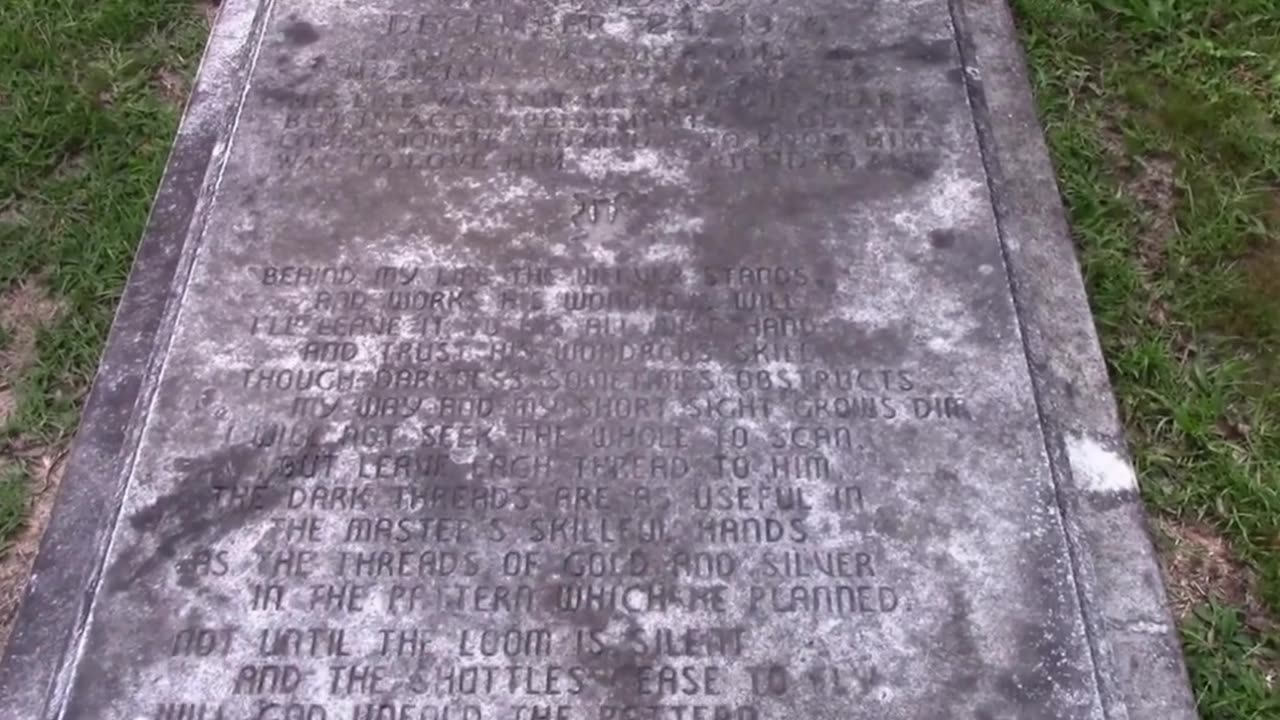Premium Only Content

The Old Man Down The Road Southern Streamline I Saw It On Tv John Fogerty
The Old Man Down The Road Album: Centerfield (1985)
Southern Streamline Album: Blue Moon Swamp (1997)
I Saw It On TV Album: Centerfield (1985)
by John Fogerty
The Old Man Down The Road deals with John Fogerty's extensive legal troubles, which weighed on him for over a decade. An early contract he signed forced him to relinquish the rights to his Creedence Clearwater Revival songs but at the same time obligated him to keep recording. After the band broke up, he was so disillusioned with the industry that he refused to play the Creedence songs, in part because so many of them were joyful tunes, and he was feeling anything but.
"The Old Man Down The Road" is a depiction of the Devil using imagery found in many blues songs where a Faustian deal is struck. This is how Fogerty felt about his contract: he gave up his songs (and to some extent, his soul) so he could make music, and now he was paying the price.
"It tells the story about a man standing in your way with a suitcase covered in rattlesnake hide, eyes as black as coal," Fogerty said. In his case, this demon is the record company.
The Old Man Down The Road is the first single from John Fogerty's Centerfield album, this was his first big hit as a solo artist. Fogerty was the driving force of Creedence Clearwater Revival, which broke up in 1972. He released solo albums in 1973 and 1975, then took 10 years away from recording because of legal battles and also because he was enjoying life on his farm.
Saul Zaentz, who owned the publishing rights to the Creedence Clearwater Revival songs, sued Fogerty, claiming "The Old Man Down The Road" sounded too much like the 1970 Creedence song "Run Through The Jungle." This bizarre lawsuit may have been the first time an artist was sued for plagiarizing himself. The case went to a jury and was eventually dismissed in Fogerty's favor, although appeals kept the case alive until 1993. A frustrated Fogerty even refused to play any Creedence songs on his 1986 tour.
During the trial, Fogerty at one point was trying to explain that there are only so many ways to play Swamp Rock. After a demonstration on his guitar, he said, "Yeah, it’s the same interval. What am I supposed to do, get an inoculation?" In a 1997 interview with Goldmine, Fogerty said: "I proved that, no, I didn’t copy myself, I invented something new that really sounds a lot like me. Do you find fault with Elvis for sounding like Elvis? When McCartney sounds like McCartney or Dylan sounds like Dylan? No one else ever had to go through that."
It wasn't until 2023 that Fogerty gained control of his own catalog by buying it from Concord Music, which had acquired the Fantasy catalog.
Fogerty had quite a catharsis the first time he heard The Old Man Down The Road on the radio. He was driving in Northern California from El Cerrito to Berkeley on the Bayshore Freeway when he heard it come on. To him, it represented vindication from his oppressors in the industry. Fogerty told the radio show Soundcheck: "I was overjoyed, and I said, 'Take that you old man!'"
The Old Man Down The Road not only revived Fogerty's career, but it also gave him a presence on MTV where he gained a whole new following. The video was directed by Mick Haggerty, who did many of the Hall & Oates clips.
The video for The Old Man Down The Road has a very clever concept, following an electrical cord that starts at an amp and traces a path though a swamp, a limousine, and various roads before ending at Fogerty's guitar.
In his memoir Fortunate Son: My Life, My Music, Fogerty dispelled the rumor that this song was written about music executive Saul Zaentz - he hadn't been thinking specifically about Zaentz at all when he wrote it. It was only later, after the song was released, that Zaentz popped into Fogerty's mind as being connected to it.
When Fogerty first heard the song on a Top 40 radio station, he felt ecstatic. "After being chained to the rack in Saul's dungeon for so many years, I was so happy, like a little kid. The song ended and I said, 'Ha! Take that, old man!" Fogerty later said it was "more than a comeback. This was a triumph over evil!"
Fogerty wrote "The Old Man Down the Road" in Albany, New York. He was messing around on his Washburn Falcon guitar when he stumbled upon riff and instantly knew it was a song ready to be born. He went into a notebook full of song titles and sketches and found the title "Somewhere Down the Road." From there, the rest of the song was born. Strangely, he was never able to find "Somewhere Down the Road" in his notebook again, though he clearly remembers finding it on that day in Albany when "Old Man" was created.
"Southern Streamline" is a song written and recorded for his 1997 album Blue Moon Swamp. It was released as the second single from the album.
According to Fogerty, "Southern Streamline" was inspired by train songs, which he greatly enjoyed growing up. The opening lyric "Mama, I'm on fire!" refers to his early desire to improve at guitar. Fogerty plays his custom Fender Telecaster on the song, which formerly was owned by the Eagles, and a Vox AC30 amplifier. He wrote the song in Newhall, California, near the first commercially successful oil well in California. He got the idea for the song after picking his daughter up from a slumber party. Fogerty originally envisioned the song as a gospel number, but transformed it into a guitar song after working in the studio. "Southern Streamline" features backing vocals from the bluegrass group Lonesome River Band.
"Southern Streamline" has become a staple in Fogerty's stage performances. It was covered by South African country musician Alan Ladd for his 2018 album Country Things.
Centerfield is the third solo studio album with "I Saw It On TV" being the 4th track. Released on January 14, 1985, it spawned the hit singles "The Old Man Down the Road" (Fogerty's only top 10 hit as a solo artist), "Rock and Roll Girls" and the title track "Centerfield". This was Fogerty's first album in nine years; After the decision not to release his Hoodoo album, Fogerty decided to take a long break from the music business because of legal battles with his record company. In the meantime, Fogerty's recording contract with Asylum Records was reassigned to co-owner Warner Bros. Records so this album was the first released on the Warner Bros. label.
Fogerty played all the instruments on this album himself, thanks to overdubbing. The image on the cover shows an old-fashioned, "beat-up glove", as referenced in the title song, and text similar to a logo of a baseball team, setting the mood for the track. The RIAA has certified the album double-platinum (2 million album sales).
-
 17:39
17:39
Psychological operations
12 days agoGot Me Under Pressure Waitin' For The Bus Jesus Just Left Chicago My Head's In Mississippi
631 -
 LIVE
LIVE
LFA TV
16 hours agoPAYBACK = JUSTICE! | LIVE FROM AMERICA 2.27.25 11AM
4,906 watching -
 DVR
DVR
Bannons War Room
9 days agoWarRoom Live
2.32M411 -
 2:17:39
2:17:39
Matt Kohrs
12 hours agoBREAKING MARKET NEWS: Bounce or Bust?! || The MK Show
33.1K1 -
 47:26
47:26
BonginoReport
4 hours agoEpstein Files Drop Today-But How Much Will They Reveal? (Ep.149) - 02/27/2025
94.8K134 -
 2:59:16
2:59:16
Wendy Bell Radio
7 hours agoThe Left Is Wrong About Everything
99.5K47 -
 29:05
29:05
CatfishedOnline
20 hours ago $3.48 earnedThe Real Jennifer Aniston or Another Romance Scam?
34.8K10 -
 34:44
34:44
LFA TV
5 days agoMIRACLES DO HAPPEN!
65.5K3 -
 16:43
16:43
T-SPLY
5 hours agoCNN Panel Member Forgets Donald Trump Runs The Military
40.1K25 -
 31:13
31:13
World Nomac
1 day agoAMERICAN visits IRAN for 10 days (this is what I found) 🇮🇷
36.6K4